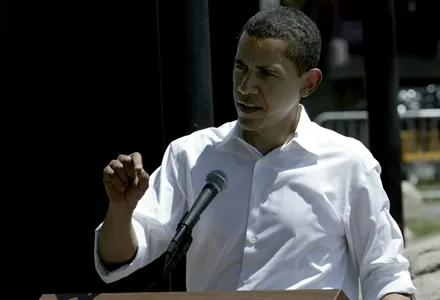Transport Ministers from 53 countries have agreed a ‘common declaration’ to improve global transport connectivity.
The formal declaration text, in which ministers agree that the “seamless transport is a powerful and ambitious strategic vision for the future of transport systems”, was approved at the Annual Summit of the International Transport Forum (ITF) in Leipzig, Germany. The declaration also states that seamless transport “drives the development of better mobility and sustainable economic growth”, an
May 4, 2012
Read time: 2 mins
Transport Ministers from 53 countries have agreed a ‘common declaration’ to improve global transport connectivity.
The formal declaration text, in which ministers agree that “seamless transport is a powerful and ambitious strategic vision for the future of transport systems”, was approved at the Annual Summit of the1102 International Transport Forum (ITF) in Leipzig, Germany.
The declaration also states that seamless transport “drives the development of better mobility and sustainable economic growth”, and notes that sustainable transport systems are important for economic prosperity, environmental protection, safety and security of society.
“The International Transport Forum once again underlined that it is the worldwide, leading platform to discuss transport issues”, said Michael Kloth, acting secretary-general of the ITF. “We are glad about the commitment of our member countries to cooperate even closer to reduce inefficiencies at the seams between transport modes, jurisdictions, systems, sectors and countries. In this way, the transport sector can become a real driver for economic growth.”
The Ministerial meeting also welcomed Chile as the 54th member country of the ITF. The country is the first from South America to join the global transport policy body.
In their meeting, Ministers also elected Professor José Manuel Viegas from Portugal as secretary-general-elect of the ITF. Viegas is expected to take up his office this summer, taking over from acting secretary-general Michael Kloth.
The formal declaration text, in which ministers agree that “seamless transport is a powerful and ambitious strategic vision for the future of transport systems”, was approved at the Annual Summit of the
The declaration also states that seamless transport “drives the development of better mobility and sustainable economic growth”, and notes that sustainable transport systems are important for economic prosperity, environmental protection, safety and security of society.
“The International Transport Forum once again underlined that it is the worldwide, leading platform to discuss transport issues”, said Michael Kloth, acting secretary-general of the ITF. “We are glad about the commitment of our member countries to cooperate even closer to reduce inefficiencies at the seams between transport modes, jurisdictions, systems, sectors and countries. In this way, the transport sector can become a real driver for economic growth.”
The Ministerial meeting also welcomed Chile as the 54th member country of the ITF. The country is the first from South America to join the global transport policy body.
In their meeting, Ministers also elected Professor José Manuel Viegas from Portugal as secretary-general-elect of the ITF. Viegas is expected to take up his office this summer, taking over from acting secretary-general Michael Kloth.








